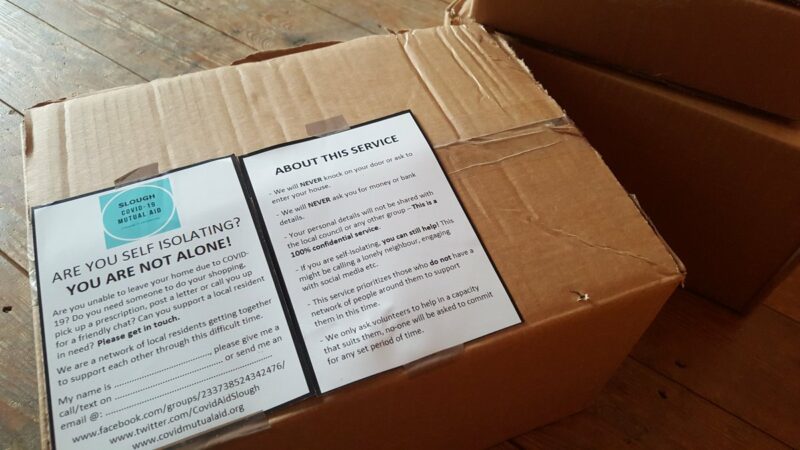How residents in a south London estate came together in mutual support during the pandemic

Across the country Covid-19 has resulted in a natural up-surge in kindness. This describes how this is being experienced in a collection of housing estates in Bermondsey, South London. As the seriousness of the pandemic became apparent residents started talking to each other and offering help.
This was in contrast to the depressing experience I had three months earlier of spending six weeks knocking on doors on the housing estates a mile further south as part of the election campaign. There was a lot of anger and a view from some people that their only hope was the ‘burn-it-all-down’ option of Brexit.
The other context is the high income inequality in our estates. Council tenants live next to leaseholders who have paid £400,000 for their flats and private renters paying £1,000 per month in rent, four times as much as council tenants. These people who lived separate lives have started talking to each other.
Singer Billy Bragg calls socialism ‘organised compassion’. There are important lessons for the Labour Party whose values are compassion and mutual aid and whose electoral success depends on convincing people that it can make a practical difference to their lives.
The tenant managed organisation I work for, Leathermarket JMB, decided to see if we could organise some of this compassion upsurge by setting up a Community Support Network of volunteers.
We set up the network to deliver emergency food and supplies for residents who were self-isolating. There was less need for this than we envisaged, largely because family and neighbours sorted this out. What we did find is deep and long term problems with poverty. The effect of years on universal credit or in low paid and insecure employment, which the Covid-19 recession is amplifying.
We found out the full extent of food poverty by accident. As Nandos closed they gave us frozen chickens to distribute. We found sixty families who needed food and another nine who never had a hot meal, because they lacked the mental or physical capacity to cook it. This represents about 7% of our council housing tenants and is likely indicative of the situation nationally.
The Monday food delivery is provided by charity Food for All, Thursday’s food by up-market restaurant owner, Jose Pizarro and Saturday’s food by small but effective charity Fast-58. We also received funding from the London Mayor for a children’s food and fun programme. This still left nine residents without hot food. Another mutual aid group stepped in to provide daily home cooked hot meals. Southwark council helped with a hardship grant. A consortium of local charities are funding our administrative costs. Local MP Neil Coyle organised food parcels.
Our core principle is social solidarity, not charity. Some people who receive food also help to distribute it. How we created our network was unplanned and opportunistic. When people and organisations saw what we were doing they either came to us or only had to be asked once for help. The focus on getting people support meant that some of the usual bureaucracy melted away. Kate Raworth writes in Doughnut Economics about mobilising societal networks to combat the problems we face. This is a networked response in reality.
Our volunteers brought a new perspective. As paid staff the under-funding of adult-social care had become a sad reality of our working lives. However, conversations with volunteers about the living conditions of two residents led us to renew our efforts to get them desperately-needed support. This led to a more general discussion with Cllr. Jasmine Ali, responsible for Southwark adult social care, on how social care professionals and volunteers can work together.
The volunteers also highlighted the number of women isolated by poverty, child-care and ill-health, and unable to tend to their own physical and mental health. They set up a virtual women’s friendship group, with a view to organising get-togethers as soon as possible.
There is a question about whether our volunteer network will sustain this level of activity now that the adrenaline rush of responding to the peak pandemic is over and we are adjusting to trying to live more normal lives.
Six months into the pandemic, our volunteers and providers tell us that they want to keep going. New friendships have formed between people with different social circles. We are giving people hope and making a practical difference, and nobody mentions Brexit as the route to a better life.
Andy Bates is manager tenant-managed organisation Leathermarket JMB.
To reach hundreds of thousands of new readers we need to grow our donor base substantially.
That's why in 2024, we are seeking to generate 150 additional regular donors to support Left Foot Forward's work.
We still need another 117 people to donate to hit the target. You can help. Donate today.



